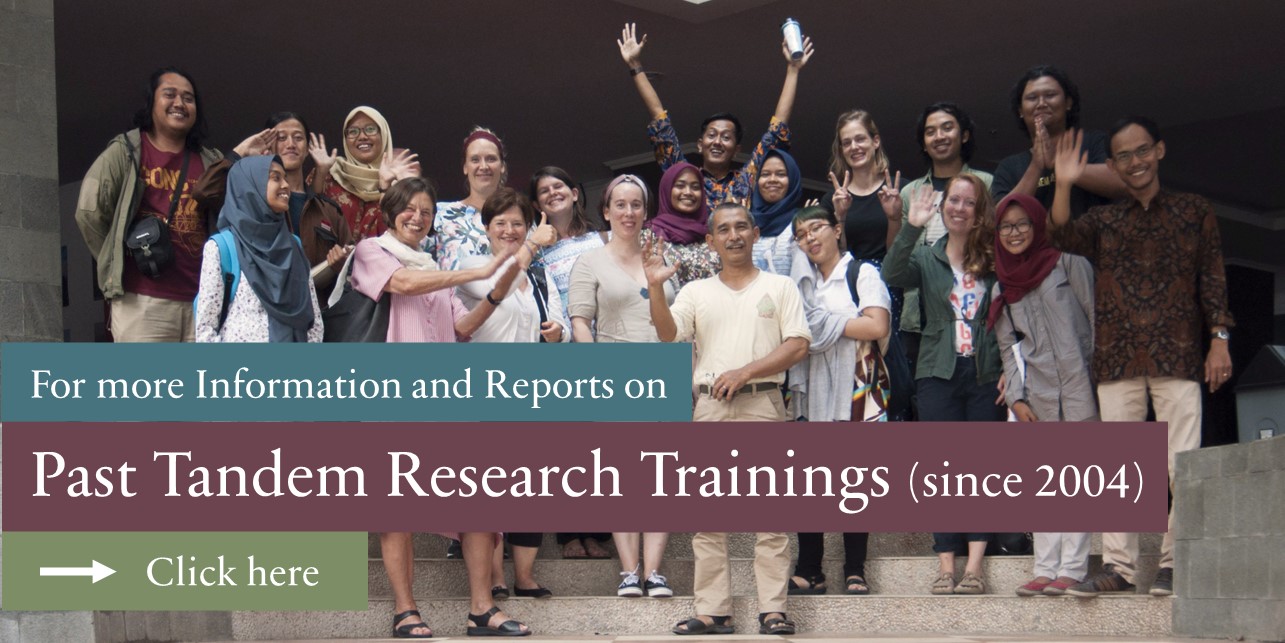International Tandem Research Training in co-operation with Gadjah Mada University, Yogyakarta, Indonesia
General Information
Since 2004, joint Tandem Research Trainings have included Social and Cultural Anthropology students from the University of Freiburg and the Gadjah Mada University (UGM). These projects are carried out in alternating years in Germany and Indonesia, supervised by lecturers from both universities. The students, working on small groups in both countries, develop questions in the context of an overarching topic that changes every two years. Through joint research-based learning, students practice their ability to adopt multiple perspectives, reflect on their own positionality and gain experience with inclusive processes of knowledge acquisition, which are of central importance for reciprocal and decolonial teaching and research practice.
The tandem research training was initiated by Judith Schlehe and has been continuously developed through the involvement of other local and interdisciplinary partner institutions. From 2011-2017, for example, Social and Cultural Anthropology students conducted research with political science students (international relations) from both universities. From 2014-2017, the collaboration also included Hasanuddin University in Makassar and, in 2020, the University of Indonesia (UI) in Jakarta. From 2018 to 2022, the University of Basel was also integrated into the project as part of the European Campus. Since 2023, Michaela Haug has continued the tandem teaching research in cooperation with Pujo Semedi Hargo Yuwono and Sita Hidayah at Gadjah Mada University.
Current Tandem Research Training
Tandem Research Training 2023 & 2024: Urban Future-Making
The current research training centres on the topic of "Urban Future-Making". In August 2023, students of Social and Cultural Anthropology from the UGM and the University of Freiburg explored urban transformation processes and aspirations for future urban lifeworlds in Yogyakarta; in summer 2024, urban transformation processes were then examined in Freiburg.

Tandem Team 2024 in front of our institute in Freiburg
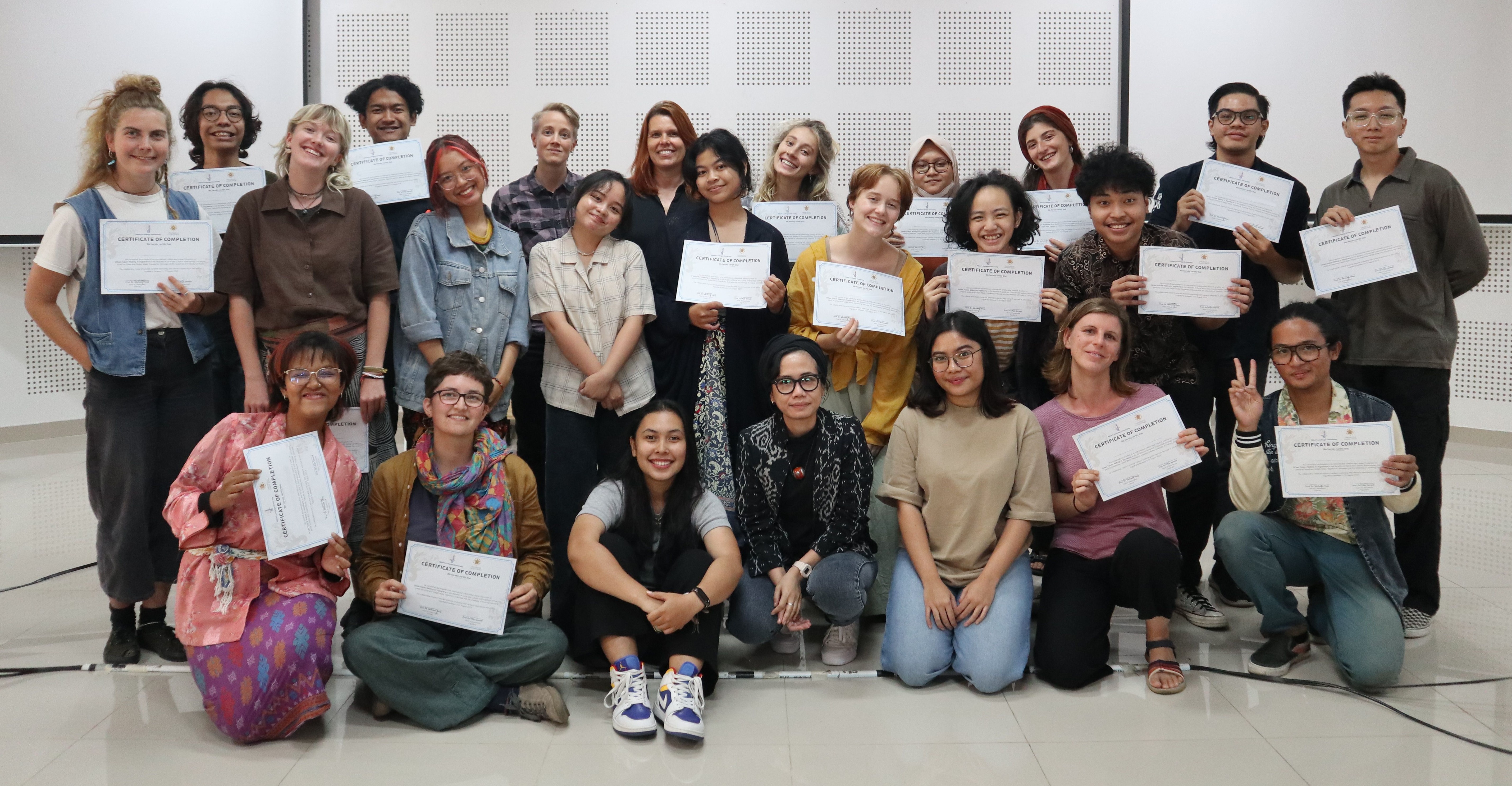
Tandem Team 2023 at UGM in Yogyakarta
Different Shades of Green in the Perception of Dietenbach
Aqilurrachman Abdul Charitz und Frederik Budach

Learning about activist solidarity
As part of this year's tandem research training in co-operation with the Indonesian University of Gadjah Mada (UGM) in Yogyakarta, our team is working on the different visions of a new ‘green’ city. At the centre of our research stands the newly planned district of ‘Dietenbach’, which is to be built at the outskirts of Freiburg. A large part of the forest in the city district of Rieselfeld has to be cleared for this new district. A small, heterogeneous group of activists is campaigning against Dietenbach to preserve the forest. In our project, we are trying to identify and contrast the different ideas of a ‘green future’ that prevail among urban planners, activists and various proponents and opponents of Dietenbach. Our overall aim is to shed light on and elaborate the facets of a “green future for all”.
Feminist City Planning
Bianca Rahmavisya, Emily Schwab und Leo Kasper

During an expert interview with Prof. Dr. Tanja Mölders
We worked on feminist city planning in the relatively young city district of Rieselfeld in Freiburg. We wanted to find out how a feminist approach to city planning could be implemented and whether this had been done in any way in Rieselfeld. For this we conducted expert interviews with researchers on different topics and the gender equality commissioner of the city of Freiburg. We then focused more on the perspective of the residents of Rieselfeld and in what ways they experience public spaces in Rieselfeld. Among the topics that came up were the inclusivity of Rieselfeld, the extent to which it is a great place for young families, and the gap between the images of Rieselfeld that younger people and older adults have.
Green Mobility: Initiatives Towards a More Bike-Friendly City
Carina Piening, Maya Wirsing, Michael Dira Van Terry

Cycling with the critical mass
We started with exploring the bike culture of Freiburg - a city, which is considered as very bike-friendly. We asked people what motivates them to ride their bikes. We wanted to know whether they use their bikes because they pursue a sustainable lifestyle or for other reasons, and how they perceive access to bicycle mobility in Freiburg. We further visited initiatives that are concerned with bike based mobility, such as bike-recycling shops, different bike and repair shops, the “critical mass” and the national bike club. It stood out to us that many people we observed and talked to aren’t content with the current situation for bikes in Germany but also in Freiburg. Those were people that just like bicycling on the one hand but mostly were concerned about the climate as well. In several in-depth interviews we learned that those topics can’t be separated from each other and that we are far away from a car-free city, but that many ideas and attempts exist to work towards that ideal.
Car-Free Living in the Vauban
Laura Landsberg, Josephine, and Julia Kümmel

Exploring Vauban – one of Freiburg’s well known “green” city districts
During this research training, we were called JJL in Vauban: Julia, Josephine, and Laura. We conducted field research in Vauban to explore the impacts of urban planning in the district, as Vauban is internationally known as a “green” model district, which promotes car-free living. In the course of our research, we not only learned a lot about green urban planning, but we also had many opportunities to learn with and from each other. After a month of research, we found a lot of new knowledge about district planning, like for example where Vauban specifically provides parking for its residents who have private cars. Above all, this district shows how inclusivity can be achieved through urban planning that involves many stakeholders.
Tandem Research Training 2023 in Yogyakarta - Urban Future-Making
Millennial Farmers in Yogyakarta: Hopes and Aspirations of Urban Farmers in Yogyakarta
Nicole Rumert and Putri Sekar Melati
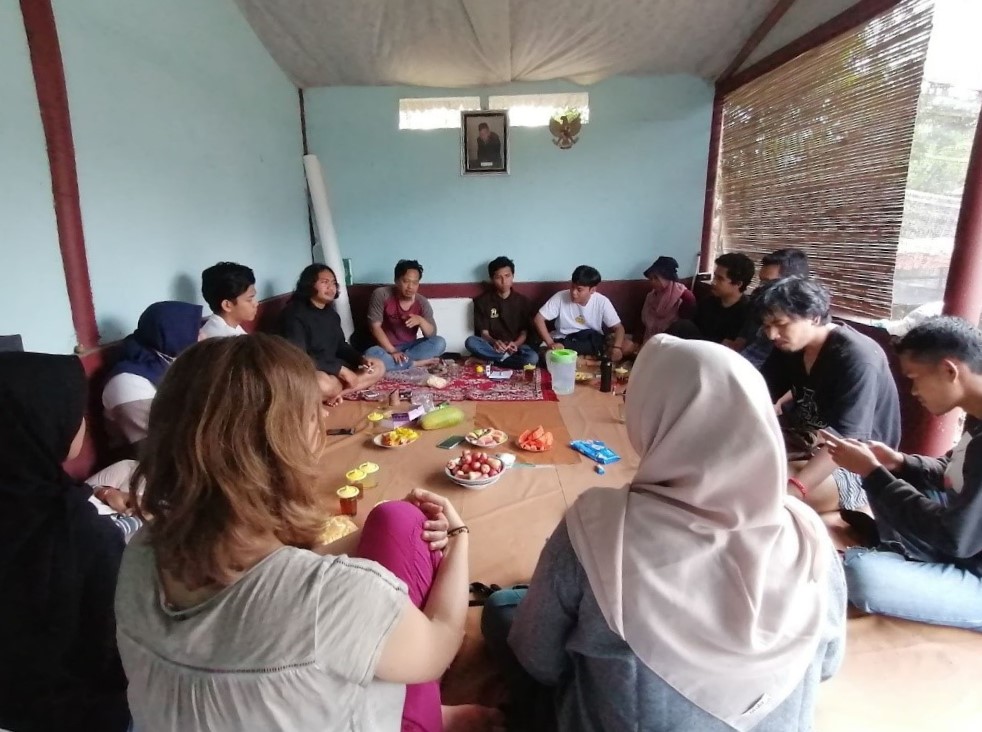
We engaged with young urban farmers in the city of Yogyakarta within the topic of “urban future-making” during our tandem research. Working as an international team, we immersed ourselves into the hopes and aspirations of our interlocutors by joining various meetings as well as participating in different farming activities. Participating in activities as a key method for anthropological research gave us the opportunity to connect to our interlocutor’s experiences and has been very crucial for our working experience as a team. The experience of working as a tandem has been a precious opportunity in which we were able to learn from each other, to overcome obstacles as a team and to explore the world of anthropology together.
Gelanggang Mahasiswa UGM
Antonia Riegger, Aqilurrachman Abdul Charitz, Daiva and Cornelius Prabhaswara Marpaung
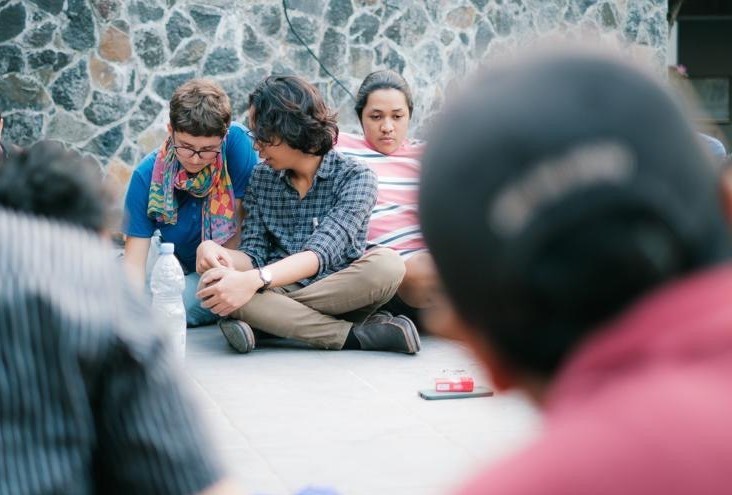
In our group research, we addressed the “Gelanggang Mahasiswa,” a building complex on the campus of our partner university, Universitas Gadjah Mada in Yogyakarta (UGM). From 1975 to 2020, this complex provided premises for various initiatives in which students were active across faculties, exchanging ideas and networking. In 2020, during the period of online teaching due to the Coronavirus pandemic, the building complex was demolished by the university following the announcement that a new corridor would be built - the so-called GIK, which is currently under construction and is scheduled to open at the beginning of 2024.
We dealt with the following questions: How are (open) student spaces at the university being created, designed and negotiated? How do they shape the university culture and what conflicts arise from the interests of different stakeholders?
During our research, we got the impression that the actors involved in the process have different and sometimes conflicting interests in the new GIK. It remains to be seen which of these expectations, hopes or fears the GIK will fulfill when it opens and how the actors involved and, above all, the UGM students will react to this.
Street Food & Waste Management in Yogyakarta
Bianca Rahmavisya und Kiara Roller
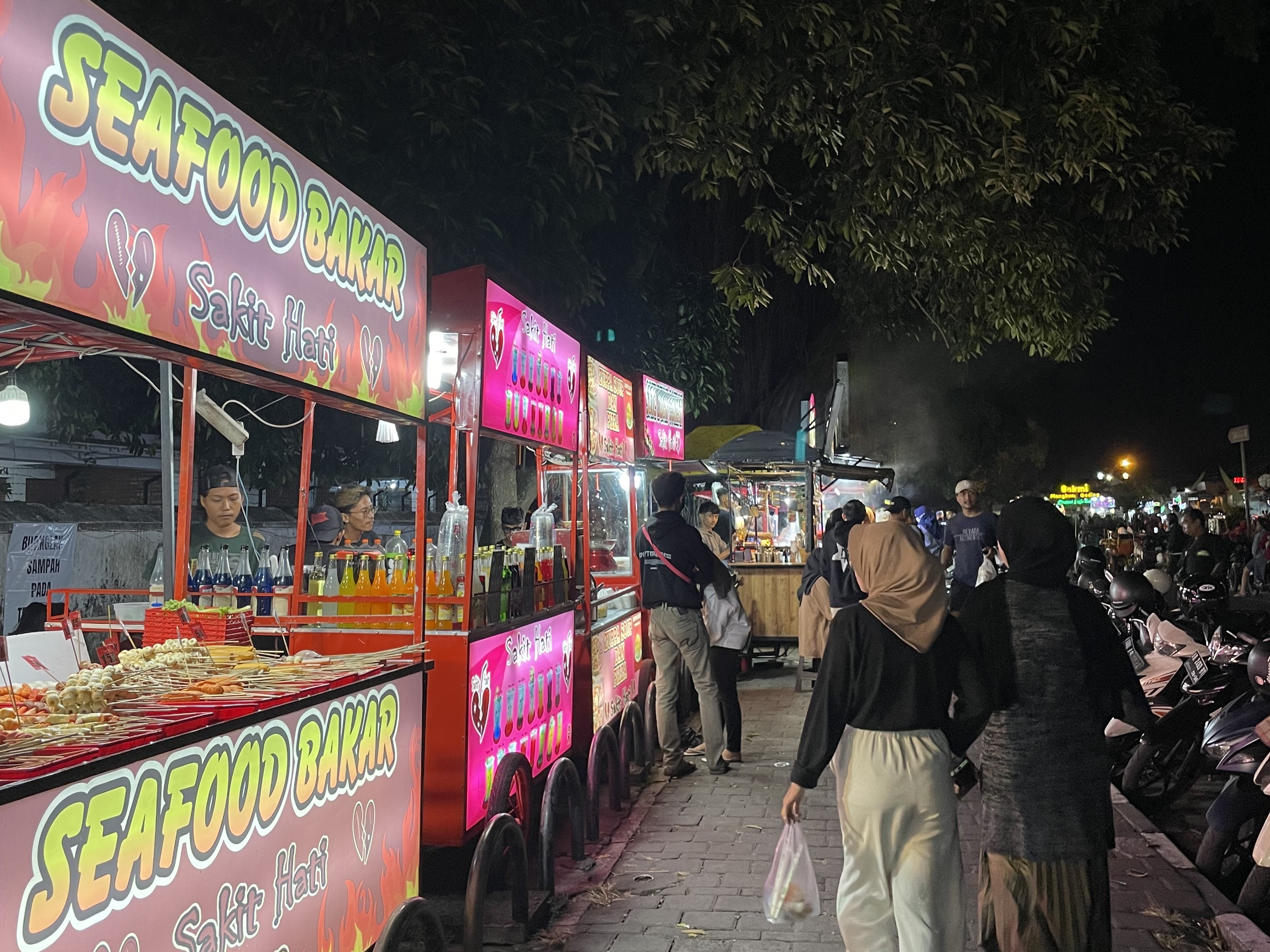
We researched the topic of street food and waste focused, focusing on the packaging that is produced in this sector. We categorised the types of packaging and the reasons why the vendors chose a particular type. We also asked customers whether the packaging had an impact on their purchasing decision. In addition to these aspects, we expanded our view of the waste infrastructure in Yogyakarta and the impact of packaging waste on the region.
We found that the most common packaging is single use packaging, which is made of plastic. Price or efficiency were often the main arguments for this decision and packaging often played a secondary role for customers, with the quality of the food being the primary consideration. Nevertheless, there were a few people who also offered sustainable packaging, but they were outnumbered.
Wastemanagement in Sukunan Eco Village
Josephine, Sitti Monira Fyenci F. Laya and Nora Papanastasiou
Our team decided to research the Sukunan Eco-Village as we understood that the village had successfully implemented a community-based waste management programme. Our aim was to understand how this initiative affected the residents of the village. Through numerous interviews with Sukunan residents, we realised that what was originally conceived as a sustainable waste management project had gradually evolved into an up-and-coming tourist attraction. We were lucky enough to meet an anthropologist who had been actively involved in the programme for over 20 years. She returned to the kampung to review the development of the programme and generously invited us to accompany her. It was extremely valuable to meet an anthropologist in her field of research and to observe how she conducted her data collection.
The Future Perspective of Children in Kalicode
Hanes, Kawai Labiba Mathilda Ahmad, Leo Kasper and Muhammad Harits Hibatullah
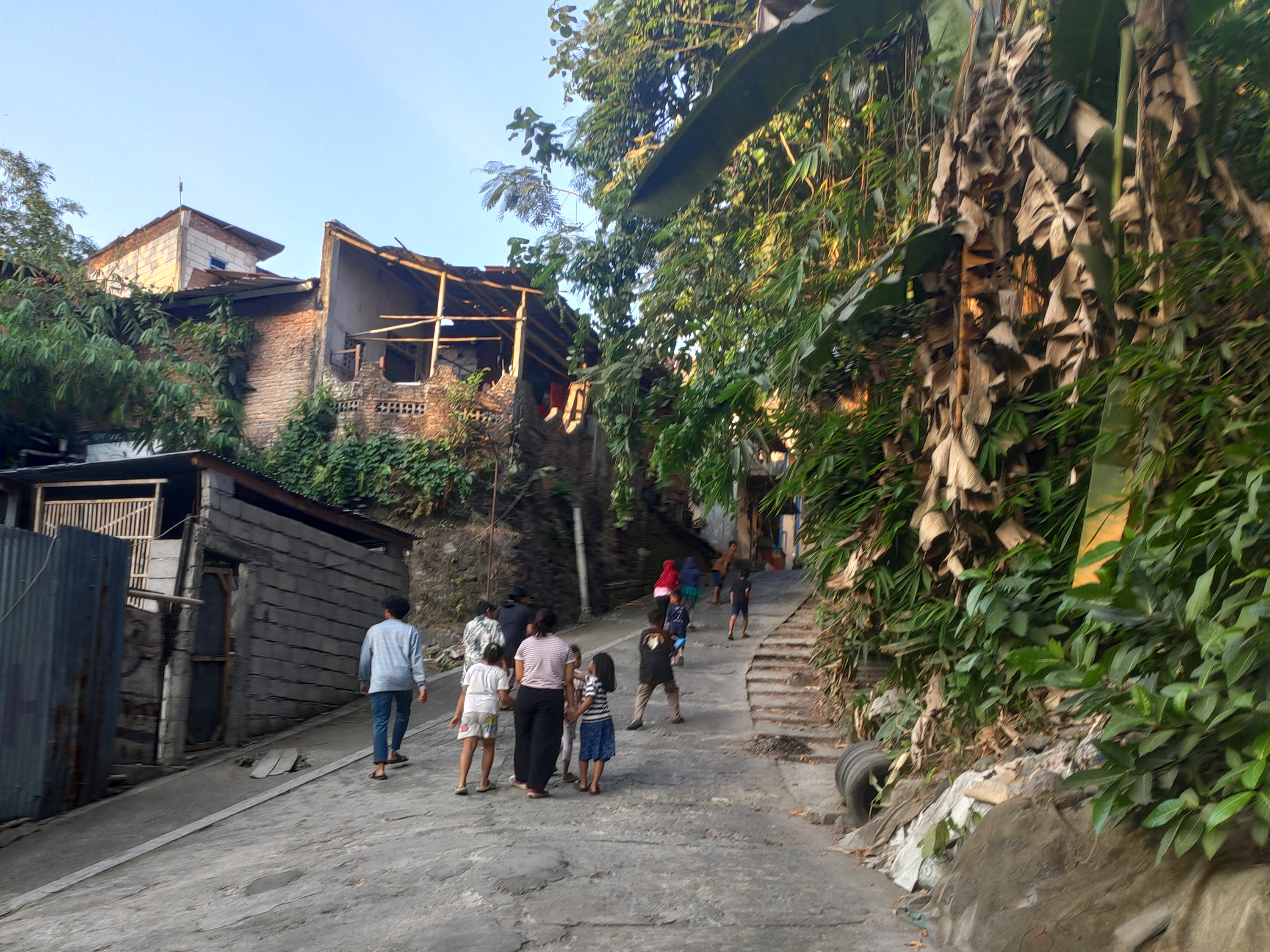
Our lives are characterised by temporality and the seemingly (in)finite possibilities of the future. Children in particular generally still have the majority of their future ahead of them and thus seem to embody the potential of an unwritten future with all the possible directions they could still take. But to what extent do the economic conditions of the environment in which they grow up shape their “future potential” and possibly their ideas and expectations of their own future? To find out, our tandem research group tried to conduct research in a neighbourhood of Yogyakarta that is considered economically disadvantaged. Unfortunately, we were unable to come up with any clear results within a month, but we were able to get to know a large group of children from this district and were able to take part in various neighbourhood events that took place there. This gave us a first insight into this topic and allowed us to try out different field research methods. It was also very exciting to work in a research group with anthropology students from another country for the first time and to experience and shape this new group dynamic! All in all, we am very grateful for this experience, which gave us a new insight into the possibilities of anthropological collaboration.
Navigating Urban Mobility
Aqilah Rahmawati, Fine Kronshage, Michael Dira van Terry and Salsabila Aufa Nariswari
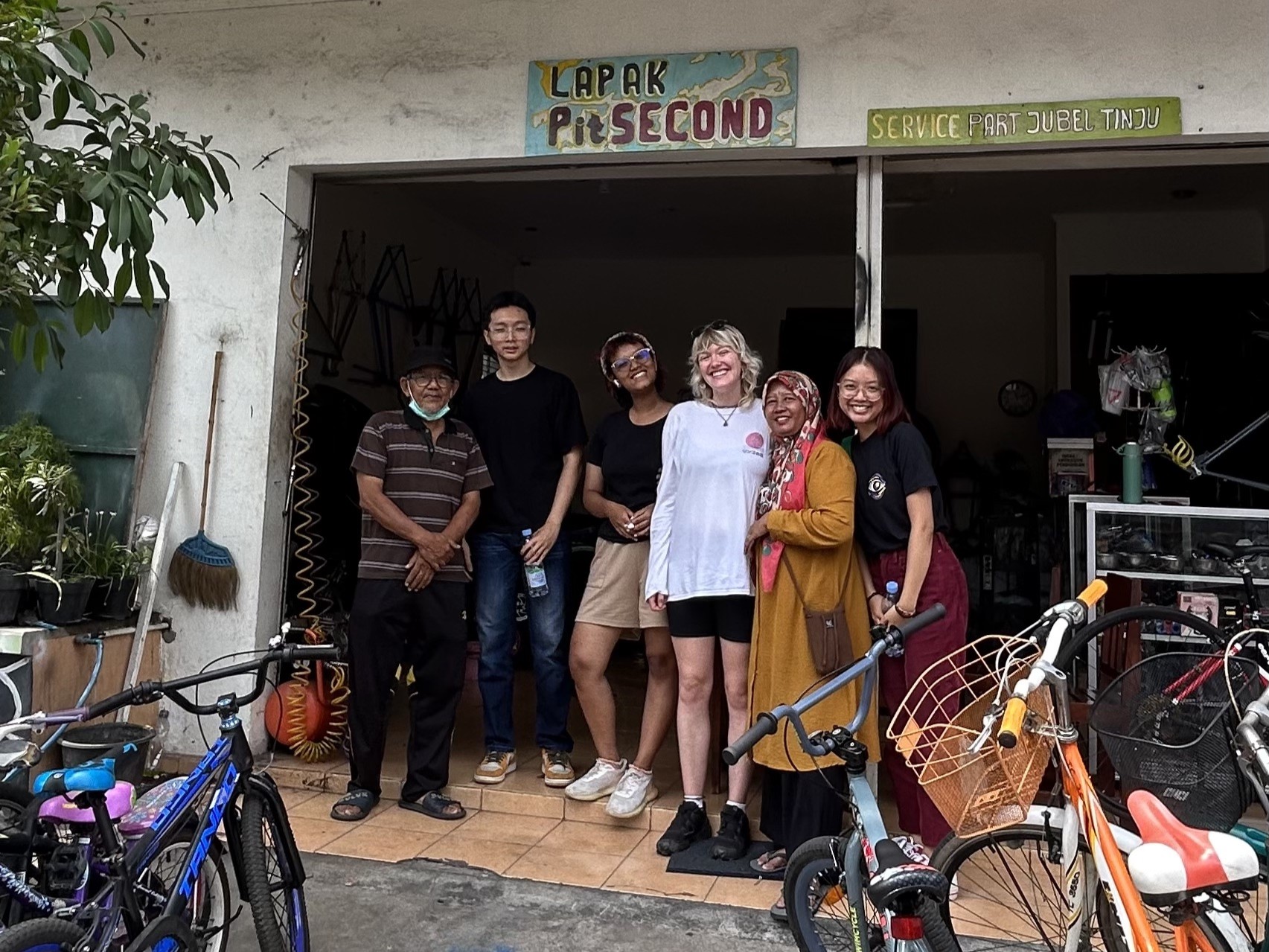
The topic of our tandem research were students who cycle from their homes to UGM campus. We focused on their challenges and aspirations for the future of cycling infrastructure in Yogyakarta. In addition to experiencing cycling through Yogyakarta ourselves, we conducted interviews and participant observation in our tandem group of five. We also looked at the topic of distance asking what is defined as close and easily accessible by bicycle and what is defined as “too far.”
Community Based Tourism in Kaliurang
Anna Wessely, Ester Krenhapuk Mariana Nainggolan and Lintang Abiyasa
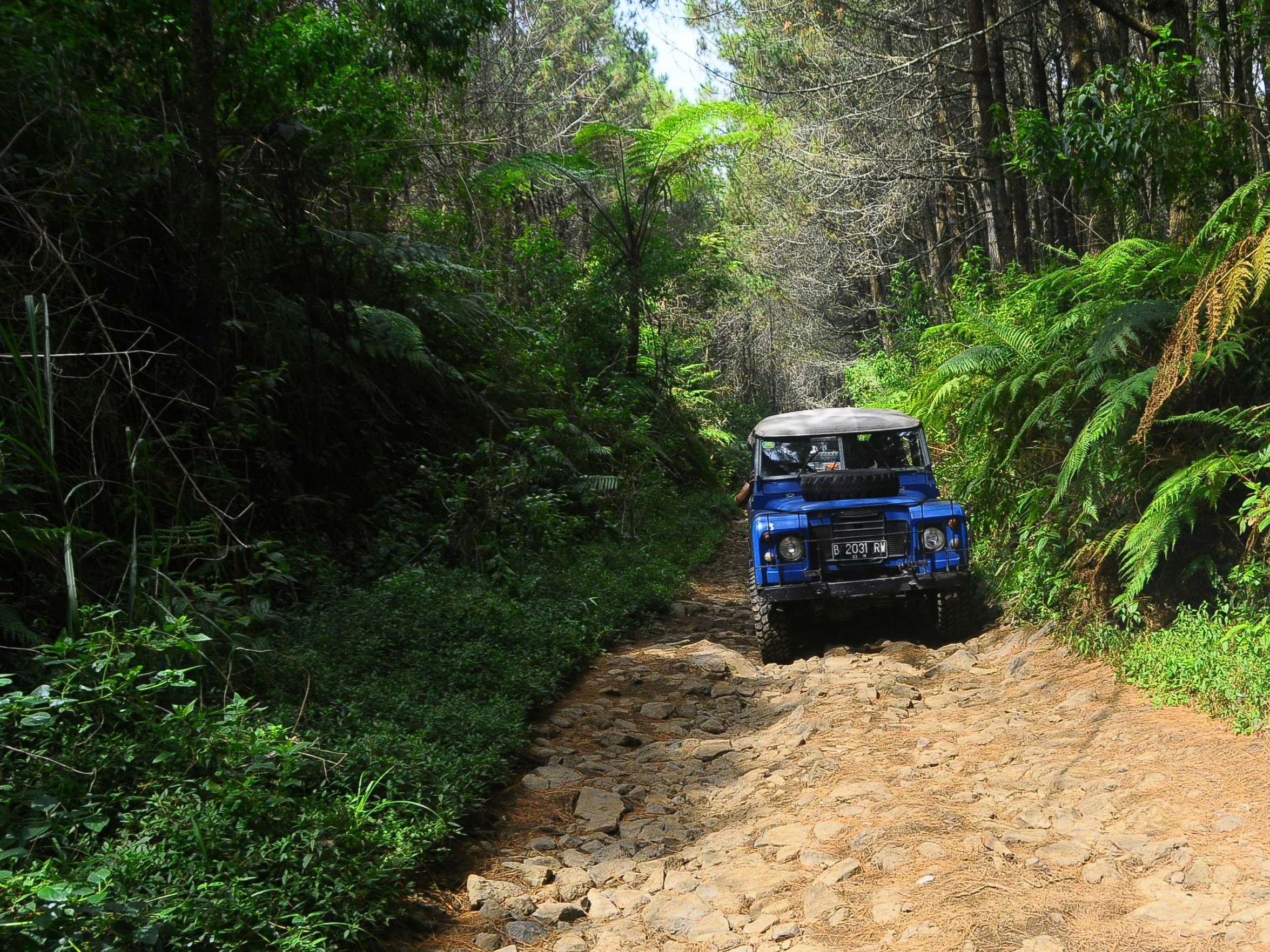
Our research group spent most of the time in a village near to Yogyakarta called Kaliurang. It is located on the foot of Mount Merapi, a volcano that erupted in 2010 for the last time on huge scale and afterwards turned into a catalyst for lava and jeep tourism in the area. Out of a community-based initiative, rescue jeeps were used as a touristic adventure attraction to experience the effects of the volcanic eruption. Since then, the tourism sector in the area has been constantly growing, thereby bringing financial income to the village and its inhabitants and positively influencing the urban tourism of Yogyakarta. There is a saying that you haven’t been to Yogyakarta if you haven’t experienced Jeep tourism in Kaliurang. We, as research group, were interested in the following questions: Which dimensions of future imagination, aspiration and concerns come with the growing touristic jeep business? How do the local people experience their life and touristic work in an area, portrayed as “a region affected by catastrophe” and therefore confronted with transmigration programs by the state? How do the local people experience the diverse effects that come with day-to-day life next to an active volcano and how does it shape their future?
Information on Previous Tandem Research Training
For more information and reports on previous training research since 2004, please see our archive.
Publications & press review
Publications
- Schlehe, Judith and Sita Hidayah. 2014. Transcultural Ethnography: Reciprocity in Indonesian-German Tandem Research. Research. In: Huotari, Mikko, Jürgen Rüland and Judith Schlehe, eds. Methodology and Research Practice in Southeast Asian Studies. Houndmills: Palgrave Macmillan 2014: 253-272.
- Schlehe, Judith and Sita Hidaya. 2013. Transcultural ethnography in tandems: collaboration and reciprocity combined and extended. In: Freiburger Ethnologische Arbeitspapiere 2013, Nr. 23 http://www.freidok.uni-freiburg.de/volltexte/9155/.
- Schlehe, Judith and G.R. Lono Lastoro Simatupang (eds) 2008. Towards Global Education? Indonesian and German Academic Cultures Compared. Menuju Pendidikan Global? Membandingkan budaya akademik Indonesia dan Jerman. Yogyakarta: Kanisius.
Press References
- "Jejaring Untuk Petani. Ein Netzwerk für die Landwirtschaft". Bilingual article in the magazine for DAAD alumni in Indonesia. (2019).
- "Besser nicht allein im Feld". Article from the magazine Uni Wissen about transcultural team building in Freiburg Ethnology (January 2018).
- "Dem Alltag auf der Spur". Article from the Uni Cross magazine on joint field research with German and Indonesian ethnology and politics students (16 August 2017).
- "Indonesier erforschen Deutsche: Zu Besuch bei strenggläubigen Veganern". SPIEGEL report on the intercultural teaching research project at the Freiburg Institute of Social Anthropology (17 November 2011).


